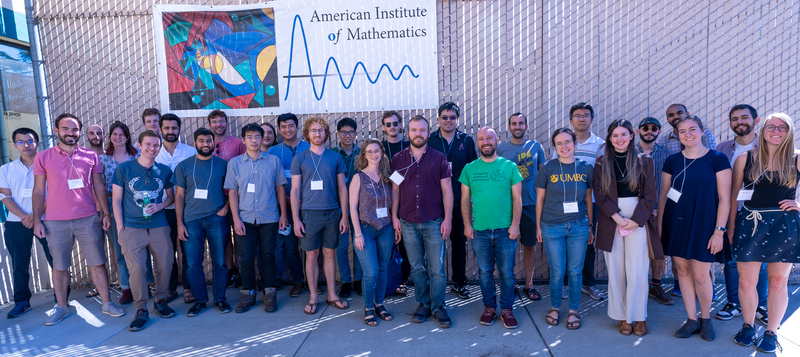
at the
American Institute of Mathematics, San Jose, California
organized by
Jacob Bridgeman, Tobias Osborne, David Penneys, and Julia Plavnik
The symmetries, or self-mappings, of classical mathematical objects form groups. Given some object X, one can think of this group as living inside End(X), the self-maps in some kind of category. In recent decades, we have seen that the symmetries of quantum mathematical objects, like non-commutative spaces (e.g., von Neumann algebras) and topological phases of matter, are better described by unitary tensor categories. The reason for this is that these quantum mathematical objects are objects in higher n-categories, and their endomorphisms in these higher categories are monoidal (n-1)-categories. In turn, higher fusion n-categories yield topological quantum field theories (TQFTs) and quantum invariants for manifolds.
Quantum many particle systems can sustain large-scale complex entanglement, requiring a revision of the classical concept of a phase of matter and of the spontaneous symmetry breaking paradigm for phase transitions. During the past decade we have witnessed extraordinary progress in understanding and classifying such exotic topologically ordered phases of matter. In one and two spatial dimensions, topological order is now understood to be characterized by unitary modular tensor categories and their module categories. The situation in three and more dimensions is, however, far from settled; here a variety of intriguing systems have been discovered which defy easy mathematical classification. Higher categories and defect TQFTs have been proposed as a natural mathematical structure for their systematic investigation.
Recent results in fusion n-categories give rise to applications in topologically ordered systems, and interesting new fracton topological orders have made connections to defect TQFTs related to fusion n-categories. Thus the emerging field of fusion n-categories is expected to benefit from the close collaboration of mathematicians and physicists working at the cutting edge of topologically ordered systems in three and higher dimensions.
The main topics for the workshop are:
The workshop schedule.
A report on the workshop activities.
A list of open problems.
Papers arising from the workshop: